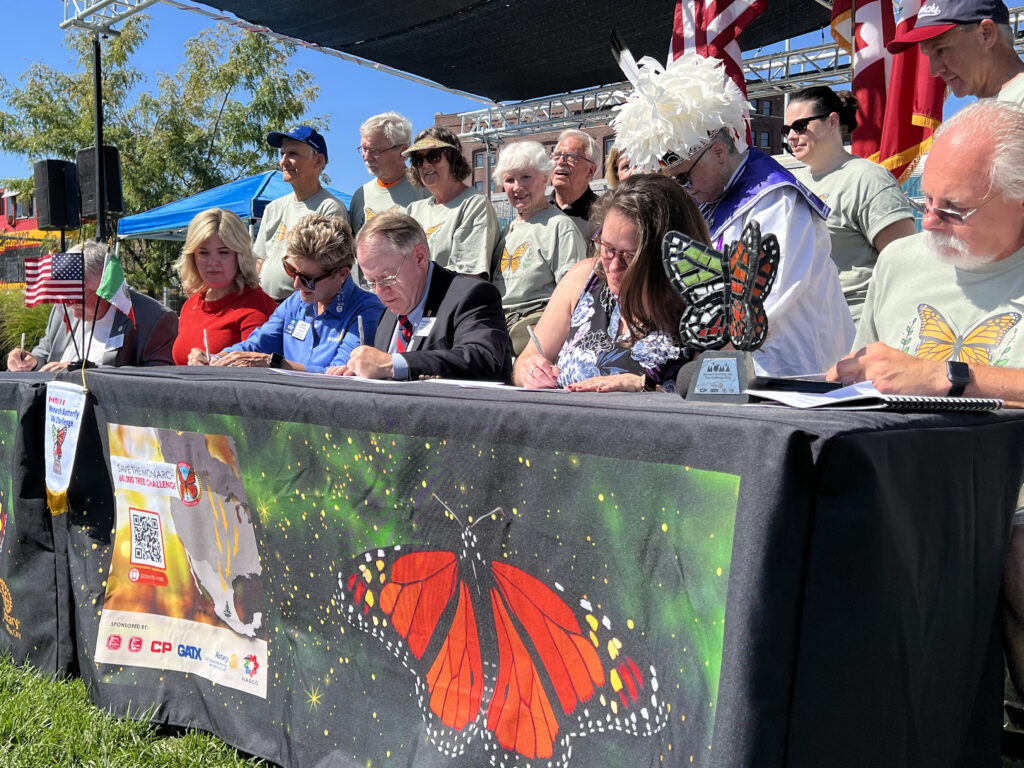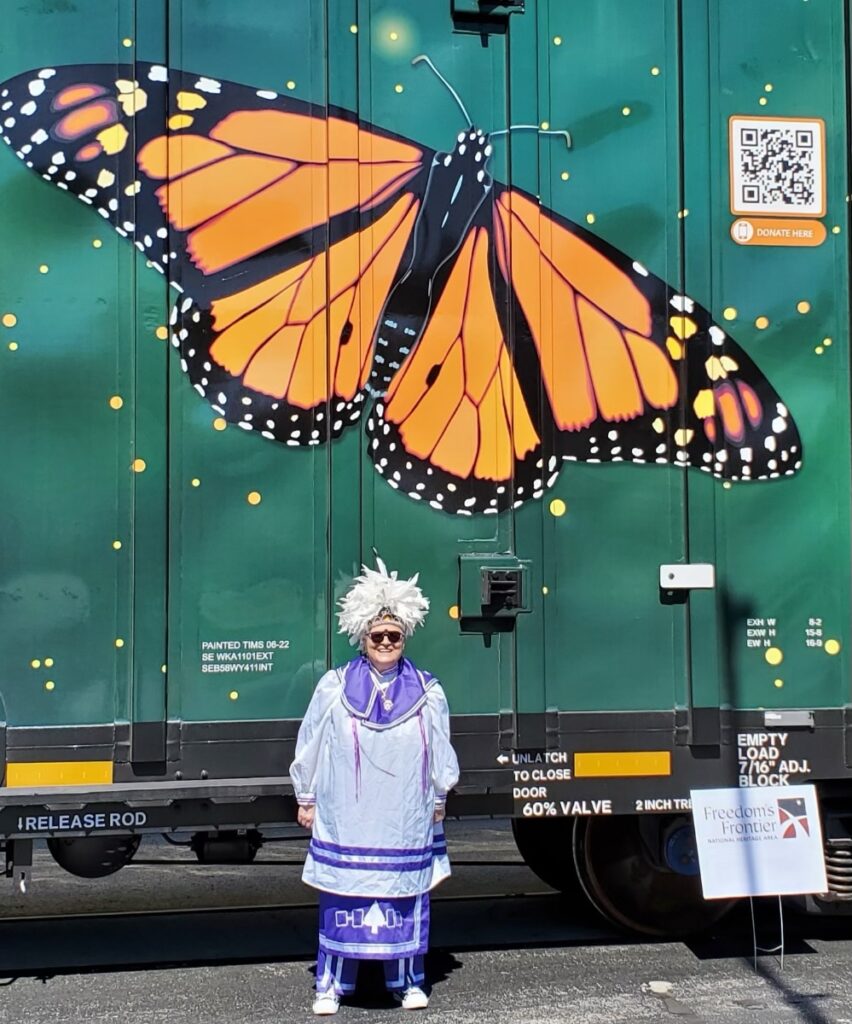Operation Pollination Partnership established between FFNHA and four Rotary districts in KS and MO
By Holly Zane
NEWS — NOV 10, 2022

The Environmental, Sustainability Rotary Action Group (ESRAG), a division of Rotary International, and its Pollinator Task Group, organized the signing of a multitude of pollinator partnership resolutions between Rotary districts and National Heritage Areas and other partners throughout the US, Canada and Mexico in coordination with the whistle-stop campaign of Rotary International’s first female president, Jennifer Jones.
The whistle-stop tour of President Jones, using a railway car brightly decorated with pollen and a monarch butterfly, affectionally christened the “Monarch Express”, started its journey in Winsor, Ontario, Canada, and ended in Morelia, Mexico, a 10 city, 55 day, 5,000+ mile journey, tracing the annual migration path of the endangered monarch butterfly.
On Saturday, September 24, 2022, the Monarch Express stopped at Union Station in Kansas City, Missouri, where the executive director of Freedom’s Frontier NHA, Lucinda J. Adams, signed Pollinator Partnership Resolutions with the governors of four Rotary districts located in the NHA to collaboratively and strategically protect and enhance the pollinator species and their habitat throughout Freedom’s Frontier NHA and the Rotary districts in Kansas and Missouri. The protection of pollinators relates to two of FFNHA’s themes, settlement of the western frontier and the enduring struggle for freedom (due to the primary importance of nature to the cultures and identities of Native Americans). The event at Union Station also included informational booths manned by a plethora of organizations that promote protection of pollinators, including Monarch Watch, Operation Pollination, MO Xerces Society, Deep Roots KC, MO Conservation Department, MO Prairie Foundation, and others.
With the assistance of volunteers and funding from the Rotary districts, it is anticipated that many of the more than 300 visitable sites in Freedom’s Frontier NHA will sign pollinator pledges to protect and enhance the pollinator species through establishing pollinator gardens, reducing mowing and use of pesticides, educating the public about pollinators, and other initiatives.

news-advocacy
news-advocacy